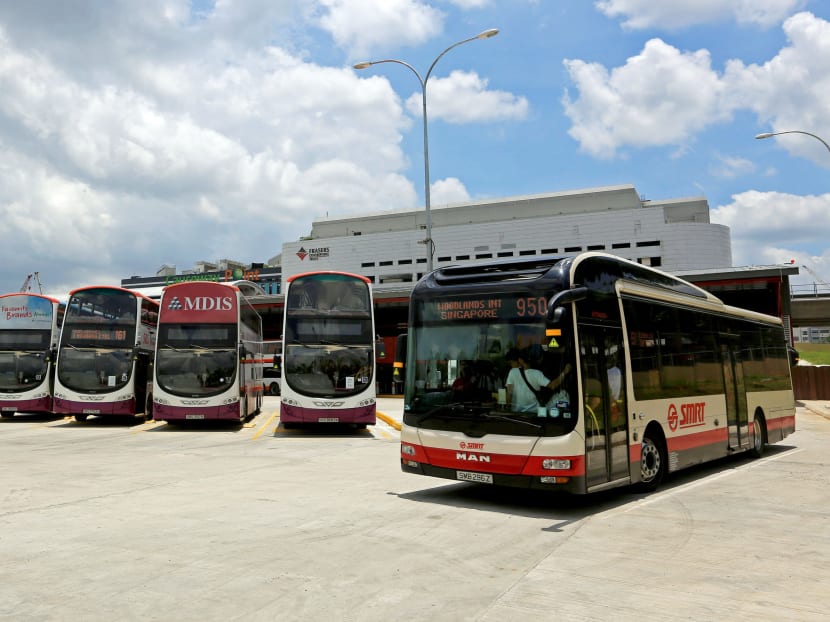Govt to subsidise bus services up to S$4b over 5 years
SINGAPORE — With the S$1.1 billion Bus Services Enhancement Programme (BSEP) in its fifth and final year, the Government will plough another S$3.5 billion to S$4 billion over the next five years into subsidising bus services amid the transition to the new bus contracting model.
SINGAPORE — With the S$1.1 billion Bus Services Enhancement Programme (BSEP) in its fifth and final year, the Government will plough another S$3.5 billion to S$4 billion over the next five years into subsidising bus services amid the transition to the new bus contracting model.
These investments — which were first mentioned by Transport Minister Khaw Boon Wan in a written parliamentary reply last month — are expected to translate into higher service levels for commuters including higher frequency of buses, said the Land Transport Authority (LTA) and public transport operators SMRT and SBS Transit in a joint statement on Friday (Oct 14).
Under the new model, which came into effect at the start of last month, the Government owns the bus operating assets and private operators compete for contracts to run routes. The additional investment comes on the back of the BSEP, which was announced in Budget 2012. Over the last four years, the BSEP has added 820 buses and 65 new bus services, including 20 City Direct Services. It has also improved 174 bus services, the joint statement said.
Transport analysts TODAY spoke to concurred that the programme — which initially drew criticism that the Government was providing too much support for private companies — had improved bus services but they questioned whether the continued practice of providing substantial subsidies for the bus industry was sustainable.
Describing it as a slippery slope, SIM University senior lecturer Park Byung Joon cited the example of Seoul where subsidies for public transport from the government have increased several fold, resulting in the cost of providing the services outstripping the fare revenue. In the end, taxpayers bear the brunt.
“Every year, costs will go up. The right balance has to be set, in terms of covering costs using fare revenue, versus subsidies,” he said.
Assistant Professor Terence Fan of the Singapore Management University noted that subsidies were previously used as a “stop gap measure” to improve services. “The question is, if the new operators have to be on higher services standards, to what extent do we still need subsidies then?” he said.
The Government subsidies over the next five years are expected to benefit commuters, the joint statement said. All bus services will have arrival intervals of not more than 15 minutes during the morning and evening peak periods, with at least half of them having intervals of not more than 10 minutes. Feeder services will run at intervals of six to eight minutes.
Under the BSEP, a total of 1,000 government-funded buses will ply the roads when the programme has run its course. Last year, former Transport Minister Mr Lui Tuck Yew reiterated that the programme was a subsidy to commuters, who would have to fork out between 12 cents and 15 cents per trip in fares if the Government had not stepped in.
Prof Fan said the BSEP has laid the foundation for bus services to improve but the enhancements can also be attributed to other factors, especially the switch to the bus contracting model which has injected competition to the industry. The authorities have also been scrutinising waiting times more closely, he said.
The LTA said in its final year, the BSEP will roll out more improvements, including a new Service 883 between Sembawang and Yishun. Two more City Direct Services will be launched in Sengkang and Hougang, and bring the total number of such services to 22. New bus services will also be added in areas such as Ang Mo Kio, Bedok, Hougang, Sengkang, Tampines, Toa Payoh, Tuas, Whampoa and Yishun.







